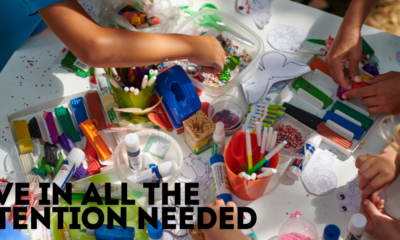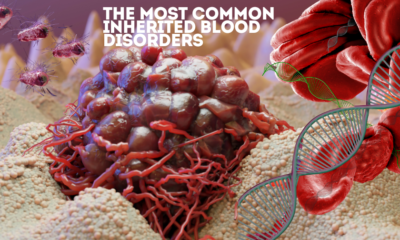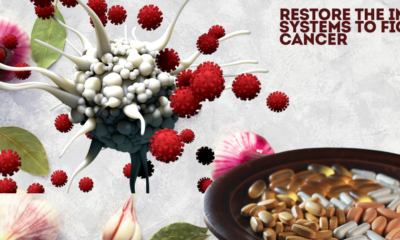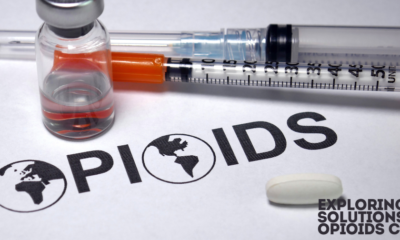Public Safety
Addressing Sexual and Gender-Based Violence: Resources and Support
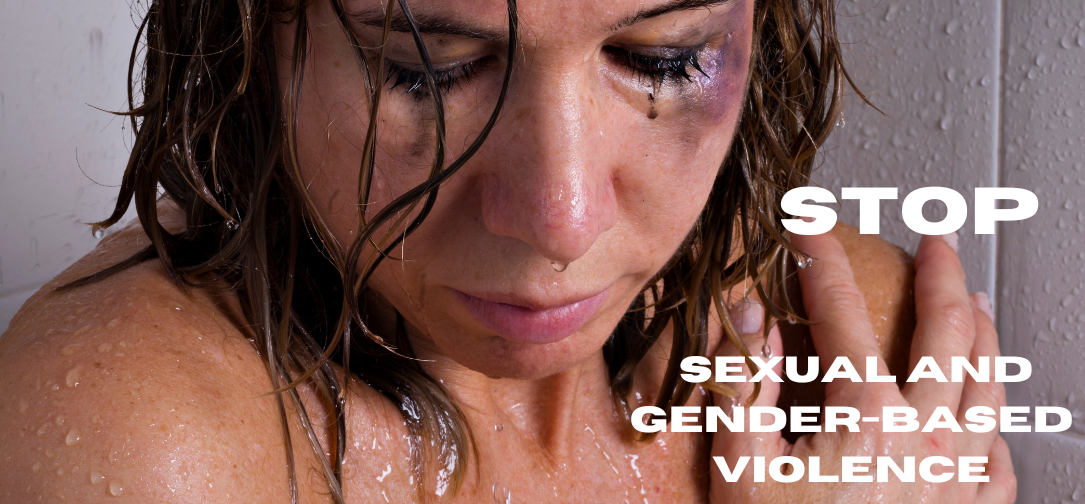
Sexual and Gender-Based Violence (SGBV) remains a pervasive global issue affecting millions, with severe consequences for victims’ health, safety, and economic well-being. This report provides a current and comprehensive analysis of SGBV, highlighting resources, support systems, and global initiatives to combat this issue. The discussion draws on recent data and perspectives from reputable organizations such as the United Nations (UN), the World Health Organization (WHO), and various government bodies to present an unbiased and fact-driven overview.
The Scale of Sexual and Gender-Based Violence
Globally, almost one in three women experience physical and/or sexual violence in their lifetime, mostly perpetrated by an intimate partner. This staggering statistic underscores the prevalence of SGBV and the need for urgent and sustained action. According to UN Women, approximately 736 million women worldwide have been subjected to either intimate partner violence or non-partner sexual violence, or both, at least once in their lives. Despite the magnitude of the problem, only 25% of countries currently have systems to track budget allocations for gender equality, and merely 0.2% of global Official Development Assistance is directed to SGBV prevention initiatives. This data highlights significant gaps in global funding and commitment to addressing violence against women and girls effectively (UN Women, 2023).
The COVID-19 pandemic exacerbated existing inequalities, further intensifying violence against women and girls. Lockdowns, restricted movement, and economic insecurities created conditions that increased the risk of domestic violence. As a result, governments and organizations worldwide are ramping up efforts to address SGBV through enhanced policy frameworks, legal reforms, and public awareness campaigns (WHO, 2023).
International Initiatives and Frameworks
Efforts to combat SGBV are increasingly being prioritized on international agendas, driven by comprehensive frameworks and initiatives aimed at prevention and response. One such initiative is the United Nations’ “UNiTE by 2030 to End Violence against Women” campaign, which seeks to end all forms of violence against women and girls globally by 2030. This campaign, supported by civil society and UN agencies, emphasizes the importance of collective action and multi-stakeholder partnerships to address the root causes of violence, promote gender equality, and ensure survivor-centered approaches (UN Women, 2023).
The World Health Organization (WHO), in collaboration with UN Women, the United Nations Population Fund (UNFPA), and the United Nations Development Programme (UNDP), launched the RESPECT Women website in 2023. This digital resource serves as a comprehensive platform for policymakers, practitioners, and advocates working to prevent and respond to violence against women and girls. The website provides guidelines, tools, and evidence-based approaches to support countries in developing and implementing effective strategies to combat SGBV (WHO, 2023).
Key Resources and Support Systems
1) Legal and Policy Reforms:
Several countries have undertaken legal and policy reforms to protect victims of SGBV and ensure perpetrators are held accountable. For instance, new directives from the U.S. Department of Homeland Security (DHS) emphasize a victim-centered approach, providing comprehensive support for survivors of human trafficking, domestic violence, and other crimes. The DHS Council on Combating Gender-Based Violence (CCGBV) has developed a new webpage to serve as a central hub for information on resources and training available for law enforcement and the public, reflecting the ongoing commitment to combating SGBV in the United States (DHS, 2024).
2) Survivor Support Services:
Survivor support services, including helplines, shelters, legal aid, and psychosocial support, play a crucial role in helping victims rebuild their lives. The United Nations Population Fund (UNFPA) supports various programs worldwide that provide safe spaces, medical assistance, and counseling for survivors. These services are essential for addressing the immediate needs of victims and ensuring their long-term recovery and reintegration into society (UNFPA, 2023).
3) Grassroots and Community-Based Approaches:
Women’s rights organizations and grassroots movements are instrumental in raising awareness about SGBV and advocating for policy changes. For instance, the “16 Days of Activism against Gender-Based Violence” campaign, which takes place annually from November 25 to December 10, mobilizes communities worldwide to end violence against women and girls. This initiative, led by civil society organizations and supported by UN agencies, encourages global action and investment in prevention measures (World Bank, 2023).
4) Digital Resources and Awareness Campaigns:
Digital platforms have become increasingly important for disseminating information and educating the public about SGBV. Campaigns such as “NoExcuse for Gender-Based Violence” leverage social media to challenge harmful norms, promote gender equality, and provide information on recognizing and preventing violence. These campaigns have expanded their reach to include interactive tools, webinars, and online training modules to enhance the capacity of stakeholders to respond to SGBV effectively (UN Women, 2023).
Challenges and Gaps in Addressing SGBV
Despite progress, significant challenges persist in effectively addressing SGBV globally. One of the main challenges is the lack of adequate funding. As mentioned, only 0.2% of global Official Development Assistance is allocated to SGBV prevention, which is grossly insufficient given the scale of the issue. Furthermore, more than four in five women and girls live in countries without robust legal protection, highlighting gaps in legal frameworks and enforcement (UN Women, 2023).
There is also a critical need for gender-responsive budgeting to ensure that resources are allocated effectively to address SGBV. According to the World Bank, only 78% of countries have budgetary commitments to implement legislation addressing violence against women, indicating a need for greater political will and resource mobilization (World Bank, 2023).
Future Directions and Recommendations
To build on current efforts and ensure sustainable progress in addressing SGBV, the following actions are recommended:
1) Increase Investment in Prevention and Response: Governments and international organizations must increase financial commitments to SGBV prevention and response. This includes allocating sufficient resources for implementing laws, supporting survivor services, and funding women’s organizations that are at the forefront of advocating for gender equality.
2) Strengthen Legal and Policy Frameworks: Countries should adopt comprehensive legal frameworks that criminalize all forms of SGBV, ensure timely access to justice for survivors, and provide protection against retaliation.
3) Enhance Data Collection and Research: Reliable data on SGBV is crucial for understanding the problem’s scope, identifying risk factors, and developing targeted interventions. Improved data collection and research will also help in monitoring progress and ensuring accountability.
4) Promote Multisectoral Approaches: Addressing SGBV requires a coordinated response from various sectors, including health, education, law enforcement, and social services. Collaborative efforts across these sectors can ensure a holistic approach to prevention and support.
5) Empower Communities and Grassroots Movements: Empowering communities, particularly women’s rights organizations and grassroots movements, is key to driving change from the ground up. These groups are crucial in raising awareness, challenging harmful norms, and advocating for policy changes.
Conclusion
Sexual and Gender-Based Violence is a profound violation of human rights that requires urgent global action. While significant strides have been made in recent years, there is still a long way to go. Increased investments, stronger policies, and a survivor-centered approach are essential to effectively prevent and respond to SGBV. Collaboration across governments, civil society, and international organizations will be pivotal in creating a safer and more equitable world for women and girls.
-

 Blockchain Technology4 days ago
Blockchain Technology4 days agoBlockchain Beyond Cryptocurrency: 5 Game-Changing Applications You Should Know
-

 Business7 days ago
Business7 days agoDow Jones Drops Over 100 Points Amid Trade Talk Uncertainty
-

 Business6 days ago
Business6 days agoStock Futures Soar as US-China Trade Talks Yield Positive Results
-

 Business7 days ago
Business7 days agoU.S.-China Tariff Negotiations Resume Amid Economic Uncertainty
-

 Fitness & Wellness4 days ago
Fitness & Wellness4 days agoAre Smartwatches Worth It? The Best Wearable Tech of 2025
-

 Government5 days ago
Government5 days agoU.S. Government Intensifies Scrutiny of Social Security Notices Amid Funding Concerns
-

 Child Welfare6 days ago
Child Welfare6 days agoTrump’s Controversial Refugee Policy: Afrikaners Welcomed Amid Global Ban
-

 Politics5 days ago
Politics5 days agoTrump’s Administration Races Against Time to Prevent Government Shutdown


